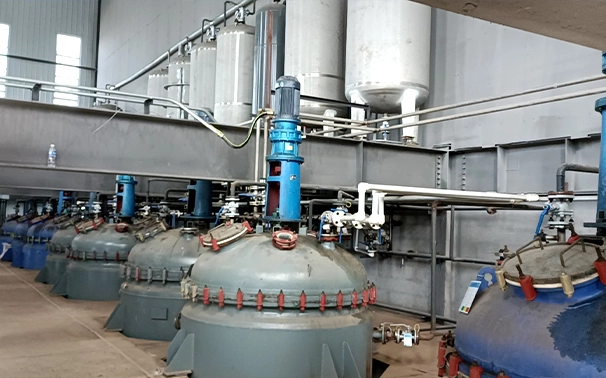flocculation in water purification
Flocculation in Water Purification
Water is a vital resource for all forms of life, and its purity is crucial for health and the environment. One of the most effective methods for purifying water is flocculation, a process that separates suspended particles from water, making it clearer and safer for consumption. This article will explore the flocculation process, its significance in water purification, and its applications.
Flocculation is a physical process where fine particulates clump together to form larger aggregates known as flocs. This phenomenon typically occurs after the addition of a flocculating agent, which might be a chemical compound such as aluminum sulfate or iron salts. These agents neutralize the electrical charges on the surface of particles, allowing them to overcome their natural repulsion and bond together. Once flocs are formed, they become heavy enough to settle at the bottom of a sedimentation tank, leaving cleaner water above.
The significance of flocculation in water purification cannot be overstated. It is a crucial step in the treatment of drinking water, wastewater, and industrial effluents. By effectively removing suspended solids, flocculation reduces turbidity and pollutants, thus improving water quality. This process also aids in the removal of pathogens and harmful microorganisms, primarily when combined with other purification methods like chlorination or UV treatment. Consequently, flocculation contributes significantly to safeguarding public health and maintaining ecological balance.
flocculation in water purification

In a typical water treatment facility, the flocculation process follows coagulation. During coagulation, chemicals are added to destabilize suspended particles, leading to their agglomeration. Following this, the flocculation phase allows the formation of larger flocs under gentle stirring. These larger aggregates can then be easily removed through sedimentation, followed by filtration.
Flocculation is not limited to potable water treatment; it plays an essential role in various industrial processes, such as paper manufacturing, mining, and pharmaceuticals. In these industries, flocculation helps manage waste by separating solid particles from liquids, minimizing environmental impact, and enhancing material recovery.
Moreover, advancements in research are continually optimizing flocculation processes. Innovative biodegradable flocculants and eco-friendly practices are being developed to reduce chemical usage and environmental harm, aligning with sustainable water treatment goals.
In conclusion, flocculation is a fundamental process in water purification that fosters the development of clean and safe water supplies. Its effectiveness in removing impurities and pathogens highlights its importance across various fields, ensuring the health of communities and ecosystems alike. As technologies evolve, flocculation will remain a cornerstone of water treatment methods, paving the way for a sustainable and healthy future.
-
lk-319-special-scale-and-corrosion-inhibitor-for-steel-plants-advanced-solutions-for-industrial-water-systemsNewsAug.22,2025
-
flocculant-water-treatment-essential-chemical-solutions-for-purification-processesNewsAug.22,2025
-
isothiazolinones-versatile-microbial-control-agents-for-industrial-and-consumer-applicationsNewsAug.22,2025
-
scale-inhibitor-key-solutions-for-water-system-scale-preventionNewsAug.22,2025
-
organophosphonates-versatile-scale-inhibitors-for-industrial-water-systemsNewsAug.22,2025
-
scale-and-corrosion-inhibitor-essential-chemical-solutions-for-water-system-maintenanceNewsAug.22,2025





